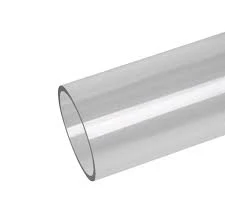Dec . 04, 2024 02:46 Back to list
hdpe conduit pipe
Understanding HDPE Conduit Pipe A Durable Solution for Modern Infrastructure
High-Density Polyethylene (HDPE) conduit pipes have become an essential component in various construction and utility applications. Known for their exceptional durability, flexibility, and resistance to corrosion, HDPE pipes are increasingly favored in the field of infrastructure development. This article explores the characteristics, applications, benefits, and considerations associated with HDPE conduit pipes.
What is HDPE?
High-Density Polyethylene (HDPE) is a thermoplastic polymer made from petroleum. Its high-density structure provides a range of advantageous properties, making it ideal for manufacturing conduit pipes. HDPE is known for being lightweight yet strong, making it easy to handle and install. Additionally, its resistance to chemicals and environmental elements enhances its longevity, making it a cost-effective solution for a range of applications.
Characteristics of HDPE Conduit Pipe
1. Durability and Longevity HDPE conduit pipes are resistant to various environmental stresses, including harsh weather conditions, UV radiation, and chemical exposure. This durability ensures that they have a lifespan of up to 50 years or more, reducing replacement and maintenance costs.
2. Flexibility The flexibility of HDPE allows it to bend without breaking. This feature is particularly advantageous in applications where ground movement or shifting may occur, such as in earthquake-prone areas or regions with unstable soil.
3. Lightweight Compared to traditional materials like PVC or metal, HDPE is significantly lighter. This characteristic facilitates easier transportation and installation, leading to reduced labor costs and faster project completion times.
4. Chemical Resistance HDPE conduit pipes can withstand exposure to a wide range of chemicals and solvents, making them suitable for various industrial applications where chemical resistance is crucial.
5. Smooth Interior Surface The smooth interior of HDPE pipes reduces friction and prevents the buildup of deposits inside the conduit, promoting efficient flow and reducing maintenance requirements.
Applications of HDPE Conduit Pipe
HDPE conduit pipes are versatile and used across numerous sectors, including
hdpe conduit pipe

- Telecommunications HDPE conduits provide a protective pathway for electrical and communication cables, ensuring they remain secure and less vulnerable to physical damage and environmental factors.
- Water and Waste Water Management These pipes are ideal for transporting potable water as well as wastewater, thanks to their resistance to corrosion and contamination.
- Electricity Infrastructure They are used to enclose electrical wiring, providing safety from weather-related damage and reducing the risk of electrical faults.
- Construction In the construction industry, HDPE conduit pipes are utilized for drainage and stormwater management systems, aiding in efficient water runoff and management.
Benefits of Using HDPE Conduit
- Cost-Effectiveness While the initial cost may be higher than some alternatives, the longevity and low maintenance needs of HDPE conduits make them a more cost-effective choice in the long run.
- Environmental Impact HDPE is recyclable, and its use helps reduce the environmental footprint of infrastructure projects.
- Ease of Installation The lightweight nature and flexibility of HDPE conduits simplify the installation process, allowing for quick deployment and minimal disruption to existing infrastructure.
Considerations
While HDPE conduit pipes offer numerous benefits, certain considerations must be kept in mind during selection and installation. Collaborating with experienced engineers and contractors is crucial to ensure proper installation as poorly installed conduit can lead to costly repairs down the line. It is also important to comply with local regulations and standards pertaining to HDPE usage.
Conclusion
In conclusion, HDPE conduit pipes represent a robust and versatile solution for modern infrastructure needs. Their unique blend of durability, flexibility, and chemical resistance makes them indispensable in various sectors, from telecommunications to water management. As industries continue to evolve, the role of HDPE conduits is poised to expand in relevance and significance.
-
Durable PVC-M Water Supply Pipes | 60-Year Life
NewsAug.04,2025
-
Premium HDPE Water Supply Pipes: Durable & Leak-Proof
NewsAug.03,2025
-
Premium PVC-M Water Supply Pipe - Durable & Efficient
NewsAug.02,2025
-
Premium PP Welding Rod: GPT-4 Turbo Enhanced
NewsAug.01,2025
-
HDPE Drainage & Irrigation Pipe - Durable, Efficient Solutions
NewsAug.01,2025
-
Premium PVC Transparent Pipe: Durable & Clear Solutions
NewsJul.31,2025

